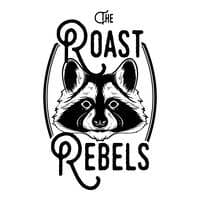Places Magazine
The Art of Coffee
Author: Christina Noli / This article was published in Places Magazine 1-17.
Translated from German.
Coffee enjoyment is currently being revolutionized thanks to a new generation of connoisseurs. Huge paper cups, sweet toppings, cheap beans and capsule systems may soon be a thing of the past, at least in part. In the course of the "Third Wave Coffee" movement, various micro-roasting plants with first-class speciality coffees have been established here in Germany. This will probably always remain a niche product - but a remarkable one.

"Good coffee is like wine, much is a matter of taste." Christian Forrer of ViCafe knows what he is talking about: In 2010 he founded one of the first micro roasting plants in Switzerland in Eglisau. "We were pioneers in the field here. We were inspired and advised by a roaster from Cape Town, where the'Third Wave Coffee' movement was already much further developed." This so-called third wave ushered in a new coffee age a few years ago: The focus is on flavour diversity, sustainability and gentle roasting. "We accompany our coffee from farm to cup. This is the only way we can ensure our high quality standards," says Forrer. The founder of ViCafe is no longer alone in Switzerland, meanwhile many small businesses in Switzerland roast their own coffee. Ricardo Seitz of the traditional roasting company Illy welcomes this development: "Apparently there is a need for speciality coffee and transparency in the development chain, so that the coffee connoisseur is increasingly informed. The end product appears transparent and credible. "You like to pay a high price for that." Even though Illy has been roasting mainly for Swiss restaurants for decades, Seitz is of the opinion: "As a traditional company in the quality segment, we perceive this phenomenon on the market as a valuable enrichment of competition. Conscious coffee enjoyment has become a lifestyle."
Essence of taste
In the scene, people agree: coffee should not be an exploitation product and fair or direct trade not just a label on the packaging of some multinational. "Whenever possible we visit the plantations, talk to the farmers and try to establish as direct and long-term contact as possible. THE ART OF COFFEE is important to us that the farmers show interest in improving the quality of their coffee and run their plantations sustainably. In return, we pay them a higher price for the beans," says Christian Forrer. Apart from micro-roasting plants, another concept has become established in recent years: roasting beans with small professional home roasters. Ingo Albrecht of The Roast Rebels says: "Once coffee was roasted on the stove at home; today there are high-quality roasting machines for the home. Besides the region, the climate and the variety, the roasting process is particularly important for the taste of the coffee. For example, coffee can taste fruity or bitter, even ripe raspberries, jasmine or chocolate". According to Albrecht, most lovers of these home roasters are interested in this variety of tastes and do not want to be dependent on the aroma of a coffee bought in the shop. In his online shop he also sells the raw green beans in packs of 500 grams. But how do you determine your own preferences? "The quickest way to find out what taste you like is through tastings, so-called cuppings. You can try as you like," says Albrecht. According to the expert, roasting at home does not require any previous knowledge. Interest and pleasure are enough. Whether you dare to roast yourself, prefer to leave roasting to the professionals, espresso, cappuccino or filter coffee, Christian Forrer's credo is clear: "Drink coffee the way you like it, not the way someone says it's right!"
Baristi - the true heroes
In addition to knowledge and passion, the perfect espresso requires professional staff, so-called baristi. Similar to a sommelier with wine, the barista knows his way around roasting and grinding degrees, throughput times, aromas, origin and preparation and knows how important each of these factors is. According to Thomas Leuenberger of the recently opened Coffee restaurant, the origin of the beans is very important. "We only serve so-called terroir varieties. These are all from the same place. In this way, the aroma structures remain intact and recognisable." It is also important that the coffee is freshly prepared, Leuenberger continues. Christian Forrer also stresses: "One to two weeks after roasting the beans develop the best aroma - you should never buy coffee in advance. Coffee, a science in itself? No wonder there are even barista championships today. The best coffee makers compete against each other in various categories, after months of working on the perfect coffee. Shem Leupin, business partner at Coffee and Swiss Barista Champion of 2013, also knows how important the previous roasting process is. At the Zürcher Rösterei Stoll Kaffee, Leupin only roasts the beans that convince him in terms of aroma and sustainability. In her small café on Grüngasse only speciality coffee is served.
Leuenberger explains: "Coffee culture in Switzerland is very traditional, speciality coffee will remain a niche product. But it always takes a few pioneers to go beyond the mark in order to bring about change." His favorite coffee these days? "Our filter coffee. If you try strong espresso all day long due to your job, the much finer filter coffee in taste is just the right thing". However, according to the expert, this cannot be compared to the broth from the 1950s; it is more like first-class tea. According to Leuenberger, however, in terms of quality it can definitely keep up with espresso and the like. Personal preference, then. But the young coffee lovers all have one thing in common: with a lot of know-how and even more passion they are always - and again and again - looking for the perfect coffee.


